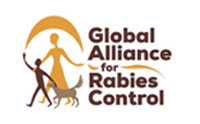
What has been your experience?
A core ICAM concept is to listen to experiences from the companion animal population management field and draw out learnings we can all share and benefit from.
We are currently exploring the government policies and legislation that impact dog population management. These policies and legislation may be targeting a range of DPM issues – for example, promotion of responsible ownership, promotion of rabies vaccinations, penalties for dog fouling, and management interventions for stray dog populations. The impacts of such policy and legislation will be on the people that own dogs, live amongst dogs, the government and NGO staff and volunteers that manage their populations and, of course, there will be impacts on the dogs themselves.
- We define policy as a set of principles and guidelines to achieve specific outcomes. Policy is a statement of intent and could serve as a specific approach to drafting or enforcing legislation, an administrative action, incentive, resource allocation or a voluntary practice. Policy may lead to legislative changes but may also be used in addition to legislation. An example from dog population management includes a decision to prioritise enforcement of rabies vaccination legislation over other dog keeping practices or halting catching of dogs on the street due to concerns over subsequent kennelling or culling methods.
- We define legislation as a written rule of conduct or action that is officially recognised as something people or communities must abide by and is enforced by a controlling authority. For dog population management, this legislation may be in central, federal or national law or secondary legislation within state or municipal regulations.
Policy and legislation aim to support people to do the right thing, by making wanted behaviours easier and unwanted behaviours more difficult. But that is not always simple to achieve. DPM policy and legislation does not work in isolation, it’s part of the wider legislative and policy system and needs to work alongside societal expectations; so considering the realities of implementation and enforcement, including resource implications, is key when developing policy and legislation. Policy and legislation also must evolve over time – affected by, and responding to, changes in the wider context including social norms relating to dog ownership practices.
As policy and legislation aims to establish a system that influences human behaviour, an understanding of why people behave as they do, and how this may be changed, can be very valuable. People do the things they do due to their upbringing, society, environment, beliefs and much more. Understanding the psychology of behaviour and applying it to policy and legislation, can be useful in creating laws that are enforceable.
Have you been involved in drafting, revising, or enforcing policy or legislation relating to dog population management? Have you been impacted by policy or legislation? We would value hearing your experiences of both where this has gone well and where it has faced challenges through our online survey. Please answer by the end of Wednesday March 9th 2022.
Our online survey presents questions about your policy or legislation experience, from which you can choose which questions to answer. Although we’d value being able to contact you with follow-up questions, you can answer the whole survey anonymously, if you wish.
Consent and privacy
By taking part in our online survey, you and ICAM are agreeing to the following consent and privacy statements:
- That ICAM and its members can share your experience and key learnings with others through online courses, webinars, through our website or other forms of communication without requesting further consent from yourself.
- If you wish your experience to remain anonymous, you will make that clear in the online survey. ICAM and its members commit to respect your anonymity in how we share your experience.
- We ask that you reflect your experience honestly, recognising that your experience will be a personal perspective and may differ from the perspectives of others. ICAM commits to ensure any editing or summarising of your contribution still reflects your experience accurately.
- You understand that completing this survey is voluntary and without payment. If you decide that you do not want to participate in the online survey, you should not submit your survey response.
- ICAM commits to only process your personal information (name and email) for the purposes of this online survey and sharing experiences and lessons learnt for educational purposes. Where you have requested anonymity, we will ensure personal information is not visible in our external communications. We will not use your personal information for any other purpose or share this personal information with anyone else.
- In analysing responses to this survey, ICAM will take all necessary steps to ensure that personal information you provide is processed fairly and lawfully. We will handle your data in accordance with the provisions of the UK Data Protection Act 2018.
- You agree that the purposes of this survey have been explained to your satisfaction, and you freely consent to take part in this survey.
- ICAM have used Google Forms as the platform for this survey. Information submitted through the survey is held in a password protected Google Account and is therefore subject to Google’s Privacy and Terms.
If you have any questions about this online survey or the above consent and privacy statement, please email info@icam-coalition.org











